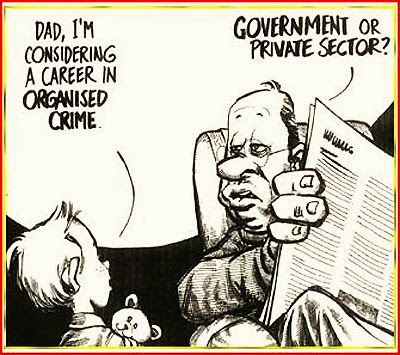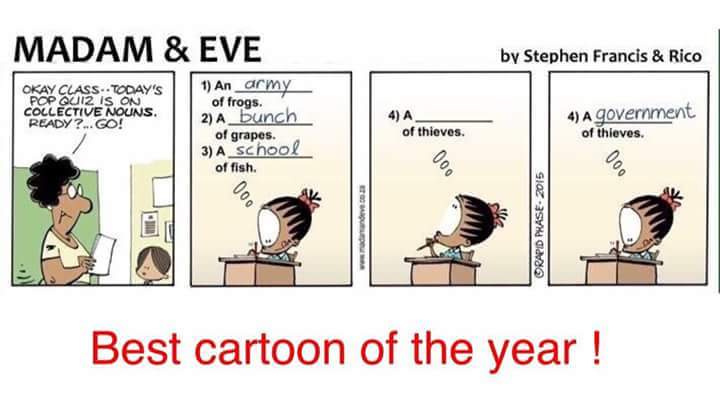Excerpt from its transcript:
01:58
Now, as I was coming of age, something else happened. As if one big story wasn't enough, I was told another one. This one was just as grand. It also claims that all human societies develop in a linear progression towards a singular end. This one went as follows: All societies, regardless of culture, be it Christian, Muslim, Confucian, must progress from traditional societies in which groups are the basic units to modern societies in which atomized individuals are the sovereign units, and all these individuals are, by definition, rational, and they all want one thing: the vote. Because they are all rational, once given the vote, they produce good government and live happily ever after. Paradise on Earth, again. Sooner or later, electoral democracy will be the only political system for all countries and all peoples, with a free market to make them all rich. But before we get there, we're engaged in a struggle between good and evil. (Laughter) The good belongs to those who are democracies and are charged with a mission of spreading it around the globe, sometimes by force, against the evil of those who do not hold elections.
03:37
This story also became a bestseller. According to Freedom House, the number of democracies went from 45 in 1970 to 115 in 2010. In the last 20 years, Western elites tirelessly trotted around the globe selling this prospectus: Multiple parties fight for political power and everyone voting on them is the only path to salvation to the long-suffering developing world. Those who buy the prospectus are destined for success. Those who do not are doomed to fail. But this time, the Chinese didn't buy it.
04:20
The rest is history. In just 30 years, China went from one of the poorest agricultural countries in the world to its second-largest economy. Six hundred fifty million people were lifted out of poverty. Eighty percent of the entire world's poverty alleviation during that period happened in China. In other words, all the new and old democracies put together amounted to a mere fraction of what a single, one-party state did without voting.
04:48
See, I grew up on this stuff: food stamps. Meat was rationed to a few hundred grams per person per month at one point. Needless to say, I ate all my grandmother's portions.
05:00
So I asked myself, what's wrong with this picture? Here I am in my hometown, my business growing leaps and bounds. Entrepreneurs are starting companies every day. Middle class is expanding in speed and scale unprecedented in human history. Yet, according to the grand story, none of this should be happening. So I went and did the only thing I could. I studied it. Yes, China is a one-party state run by the Chinese Communist Party, the Party, and they don't hold elections. Three assumptions are made by the dominant political theories of our time. Such a system is operationally rigid, politically closed, and morally illegitimate. Well, the assumptions are wrong. The opposites are true. Adaptability, meritocracy, and legitimacy are the three defining characteristics of China's one-party system.
05:57
Now, most political scientists will tell us that a one-party system is inherently incapable of self-correction. It won't last long because it cannot adapt. Now here are the facts. In 64 years of running the largest country in the world, the range of the Party's policies has been wider than any other country in recent memory, from radical land collectivization to the Great Leap Forward, then privatization of farmland, then the Cultural Revolution, then Deng Xiaoping's market reform, then successor Jiang Zemin took the giant political step of opening up Party membership to private businesspeople, something unimaginable during Mao's rule.
06:38
So the Party self-corrects in rather dramatic fashions. Institutionally, new rules get enacted to correct previous dysfunctions. For example, term limits. Political leaders used to retain their positions for life, and they used that to accumulate power and perpetuate their rules. Mao was the father of modern China, yet his prolonged rule led to disastrous mistakes. So the Party instituted term limits with mandatory retirement age of 68 to 70.
07:06
One thing we often hear is, "Political reforms have lagged far behind economic reforms," and "China is in dire need of political reform." But this claim is a rhetorical trap hidden behind a political bias. See, some have decided a priori what kinds of changes they want to see, and only such changes can be called political reform. The truth is, political reforms have never stopped. Compared with 30 years ago, 20 years, even 10 years ago, every aspect of Chinese society, how the country is governed, from the most local level to the highest center, are unrecognizable today. Now such changes are simply not possible without political reforms of the most fundamental kind. Now I would venture to suggest the Party is the world's leading expert in political reform.
07:56
The second assumption is that in a one-party state, power gets concentrated in the hands of the few, and bad governance and corruption follow. Indeed, corruption is a big problem, but let's first look at the larger context. Now, this may be counterintuitive to you. The Party happens to be one of the most meritocratic political institutions in the world today. China's highest ruling body, the Politburo, has 25 members. In the most recent one, only five of them came from a background of privilege, so-called princelings. The other 20, including the president and the premier, came from entirely ordinary backgrounds. In the larger central committee of 300 or more, the percentage of those who were born into power and wealth was even smaller. The vast majority of senior Chinese leaders worked and competed their way to the top. Compare that with the ruling elites in both developed and developing countries, I think you'll find the Party being near the top in upward mobility.
12:05
Now, Westerners always assume that multi-party election with universal suffrage is the only source of political legitimacy.
12:13
I was asked once, "The Party wasn't voted in by election. Where is the source of legitimacy?"
12:19
I said, "How about competency?"
13:19
In contrast, most electoral democracies around the world are suffering from dismal performance. I don't need to elaborate for this audience how dysfunctional it is, from Washington to European capitals. With a few exceptions, the vast number of developing countries that have adopted electoral regimes are still suffering from poverty and civil strife. Governments get elected, and then they fall below 50 percent approval in a few months and stay there and get worse until the next election. Democracy is becoming a perpetual cycle of elect and regret. At this rate, I'm afraid it is democracy, not China's one-party system, that is in danger of losing legitimacy.
18:23
EXL: You know, Frank Fukuyama, the political scientist, called the Chinese system "responsive authoritarianism." It's not exactly right, but I think it comes close. So I know the largest public opinion survey company in China, okay? Do you know who their biggest client is? The Chinese government. Not just from the central government, the city government, the provincial government, to the most local neighborhood districts. They conduct surveys all the time. Are you happy with the garbage collection? Are you happy with the general direction of the country? So there is, in China, there is a different kind of mechanism to be responsive to the demands and the thinking of the people. My point is, I think we should get unstuck from the thinking that there's only one political system -- election, election, election -- that could make it responsive. I'm not sure, actually, elections produce responsive government anymore in the world.
Rest of the transcript:
https://www.ted.com/talks/eric_x_li_a_tale_of_two_political_systems/transcript?language=en#t-3459
Link






